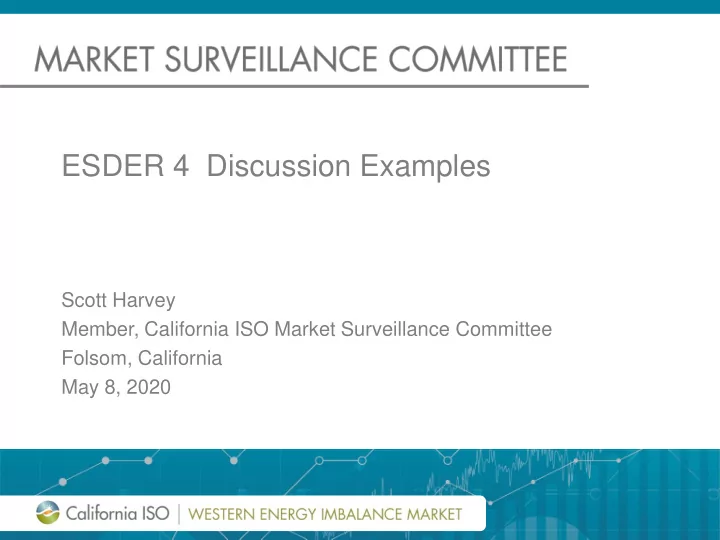

ESDER 4 Discussion Examples Scott Harvey Member, California ISO Market Surveillance Committee Folsom, California May 8, 2020
The treatment of storage in the CAISO models appears to have some design elements that need to be carefully considered in developing a market power mitigation design. 2
My Understanding of the storage optimization design is that for a charge and discharge cycle: Actual Margin = Sales Price * (1-L%) – Purchase Price Objection Function Cost = Offer Price * (1-L%) – Bid Price L% = per cent losses 3
Example 1 Offer Price = $30 Bid price = $0 Spread = $30 Losses = 10% Objective function cost = $27 Example 2 Offer Price = $30 Bid price = $0 Spread = $30 Losses = 25% Objective function cost = $22.5 If these resources submit bids whose margin equals their O&M costs, $30, they could be scheduled at a loss. 4
Example 3 Offer price = $130 Bid Price = $30 Spread = $100 Losses = 10% Objective function cost =$ 87 Example 4 Offer price = $0 Bid Price = -$100 Spread =10 0 Losses = 10% Objective Function Cost = $100 The same spread in bids and offers can result in different objective function costs. 5
Recommend
More recommend